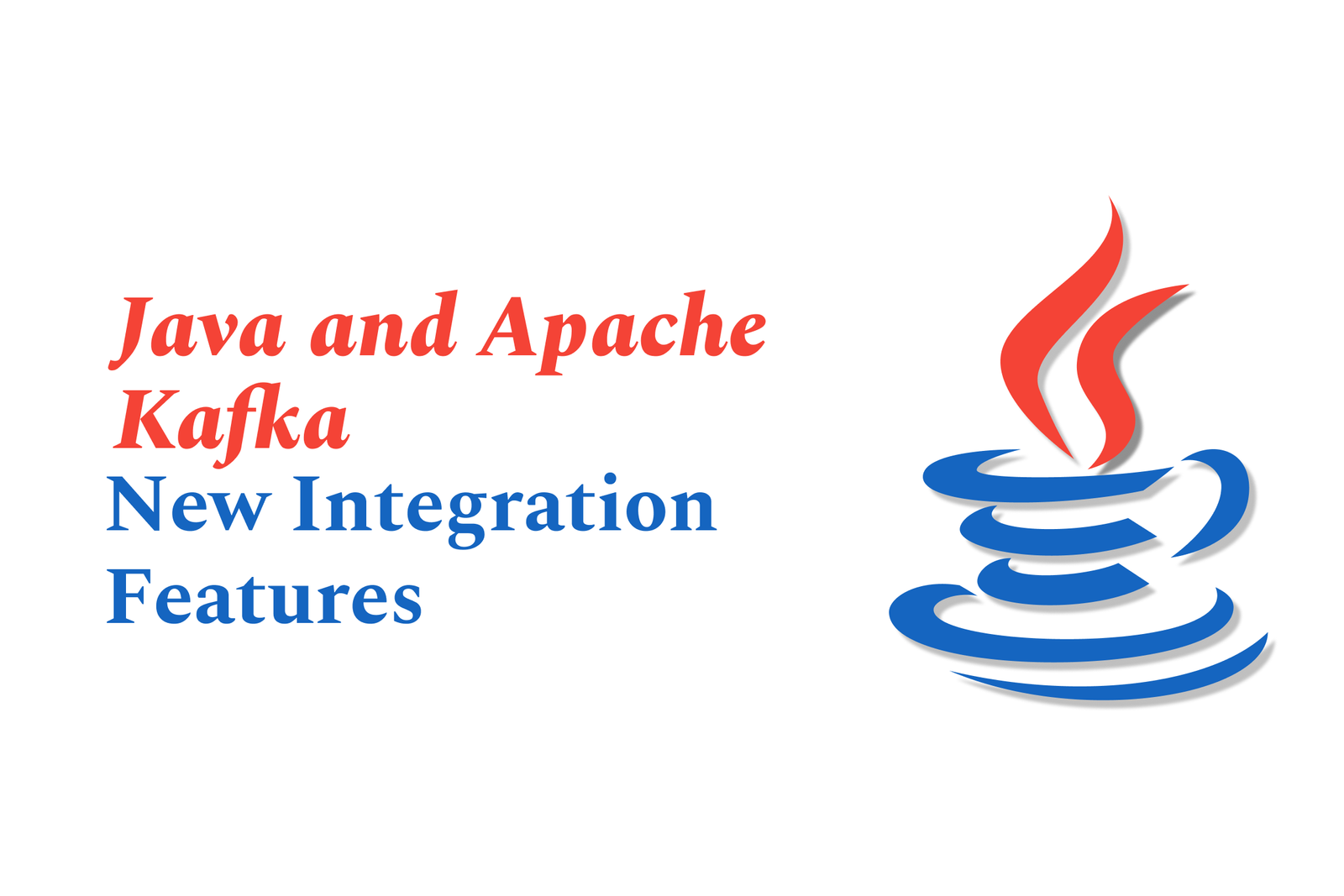Java and Apache kafka: New integration features
Java and Apache Kafka’s new integration features enhance seamless streaming with improved support for Kafka Streams, transactions, and Kafka-compatible endpoints like Azure Event Hubs. These updates simplify development, enable managed services, and boost reliability for Java-based real-time applications.
Java and Apache Kafka: New Integration Features
1 ) Overview of Apache Kafka and Java Integration
Apache Kafka is a widely used open source distributed event streaming platform, trusted by top enterprises across various industries such as manufacturing, banking, insurance, and telecommunications.
Java remains a core programming language in the development of Kafka based applications, due to its robustness and versatile ecosystem.
The integration of Kafka with Java enables the building of high throughput, scalable, and fault tolerant streaming data pipelines and real time analytics applications.
2 ) Azure Event Hubs for Apache Kafka Compatibility
Azure Event Hubs now supports a Kafka compatible endpoint, allowing Java and Kafka applications to stream data without managing Kafka clusters directly.
This Kafka endpoint in Event Hubs supports Apache Kafka versions 1 )0 and later, providing seamless migration and integration options.
Key Kafka features supported include Kafka Streams (currently in public preview) and Kafka Transactions, enhancing stream processing capabilities in Azure environments.
3 ) Key Kafka Concepts Mapped in Azure Event Hubs
Core concepts such as Kafka Clusters, Topics, Partitions, Consumer Groups, and Offsets have corresponding entities in Event Hubs (Namespace, Event Hubs, Partitions, Consumer Groups, and Offsets respectively).
This conceptual alignment simplifies the transition for Java developers adopting Azure Event Hubs in place of native Kafka clusters.
4 ) Kafka Streams and Transaction Support Enhancements
Kafka Streams library is supported in Azure Event Hubs, facilitating in flight stream processing in Java applications.
Transactions support ensures exactly once processing semantics, critical for building reliable distributed systems.
5 ) Vertica and Kafka Integration Updates
The Vertica analytics platform supports Kafka integration, including improved compatibility with Kafka API version detection starting from Kafka 0.10.
Handling of older Kafka versions (0.9 and earlier) has been improved to prevent timeouts and errors during data ingestion.
This ensures smoother performance and reliability for Java applications consuming Kafka data streams via Vertica.
6 ) Talend and Kafka Integration for Java Developers
Talend’s Data Integration platform provides components and connectors for Kafka, usable by Java developers for building data pipelines.
Different Talend product versions may require additional Kafka connectors or plugins to enable integration.
Video tutorials and documentation assist developers in configuring Kafka sources and sinks using Talend with Java.
7 ) Benefits of Enhanced Integration Features
Enables Java developers to leverage fully managed Kafka services without complex cluster maintenance.
Supports advanced Kafka functionalities such as streams processing and transactions, improving application robustness.
Facilitates migration and hybrid architecture scenarios by aligning Kafka semantics across different cloud and on premise platforms.
Provides better development, deployment, and monitoring tools for Kafka streams within Java ecosystems.
In summary, the new integration features between Java and Apache Kafka, including Azure Event Hubs support, improved Vertica compatibility, and Talend connectors, empower Java developers to build scalable, reliable, and managed data streaming applications with enhanced capabilities and reduced operational complexity.
https://justacademy.in/news-detail/flutter-sdk-updates-in-july-2025
https://justacademy.in/news-detail/flutter-for-voice-assistant-interfaces
https://justacademy.in/news-detail/inside-react-native?s-new-cli:-what-developers-are-saying
https://justacademy.in/news-detail/flutter-global-summit-updates
https://justacademy.in/news-detail/how-java-handles-api-rate-limiting-in-2025
Related Posts
In 2025, top Angular libraries offer modern, feature-rich components and tools for building dynamic web apps. From powerful data grids to low-code platforms like UI Bakery, these libraries enhance development speed, UI design, and scalability, making them essential for Angular developers.
Migrating from AngularJS to Angular 17 involves gradually upgrading your app by running both frameworks together using tools like ngUpgrade, rewriting components in TypeScript, and adopting Angular’s modern architecture to enhance performance, maintainability, and long-term support.
Angular state management tools help organize and handle app data efficiently, improving scalability and maintainability. Popular options include NgRx for robust, RxJS-based patterns, and newer Signal Store solutions that offer simpler, reactive approaches integrated tightly with Angular’s latest features.
RxJS in Angular empowers developers to manage asynchronous data streams with powerful operators like `forkJoin`, `combineLatest`, and `zip`. Mastering these key operators in 2025 is essential for building efficient, reactive applications that handle complex event sequences seamlessly.
Angular performance optimization in 2025 focuses on improving app speed and responsiveness by using techniques like OnPush change detection, lazy loading, efficient data caching, and AOT compilation. These practices reduce load times, enhance user experience, and ensure scalable, fast Angular applications.
In 2025, Angular remains preferred for large-scale, enterprise apps with its robust, all-in-one framework, while Vue attracts developers seeking simplicity and fast development for smaller projects. Both frameworks excel, with choice driven by project needs and team expertise.
Angular Signals are a new reactive primitive in Angular 16 that enable fine-grained, efficient change detection by automatically tracking dependencies and updating only affected parts of the UI. They simplify state management and boost app performance, revolutionizing Angular's reactivity model.
Angular interview questions to prepare in 2025 focus on core concepts like components, directives, data binding, routing, and dependency injection, along with TypeScript mastery and latest Angular features to ensure strong practical knowledge for building scalable, efficient web applications.
AngularJS reached its official end of support in January 2022, meaning no further updates or security patches. To ensure app security and performance, developers should consider migrating to modern Angular versions or seek third-party long-term support options if immediate migration isn’t possible.
The Angular Roadmap 2025 highlights upcoming features focused on improving developer experience and performance, including zoneless Angular, Signals integration, enhanced Forms, async data handling, improved HMR, and expanded Angular Material/CDK enhancements, driving modern, efficient web app development.










